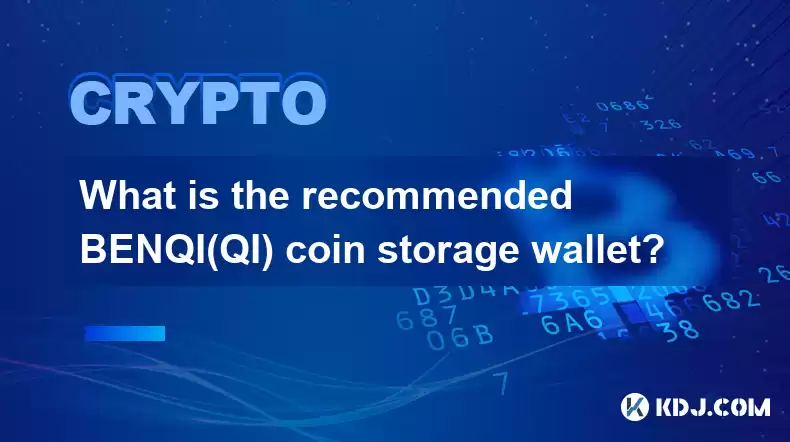-
 Bitcoin
Bitcoin $115000
0.12% -
 Ethereum
Ethereum $3701
4.50% -
 XRP
XRP $3.081
2.99% -
 Tether USDt
Tether USDt $0.0000
-0.01% -
 BNB
BNB $767.9
1.45% -
 Solana
Solana $169.5
3.13% -
 USDC
USDC $0.9999
0.01% -
 Dogecoin
Dogecoin $0.2106
4.30% -
 TRON
TRON $0.3334
1.62% -
 Cardano
Cardano $0.7564
2.54% -
 Stellar
Stellar $0.4165
0.76% -
 Hyperliquid
Hyperliquid $38.75
0.25% -
 Sui
Sui $3.593
3.00% -
 Chainlink
Chainlink $17.08
3.59% -
 Bitcoin Cash
Bitcoin Cash $573.6
4.35% -
 Hedera
Hedera $0.2508
-0.84% -
 Avalanche
Avalanche $23.07
6.46% -
 Ethena USDe
Ethena USDe $1.001
-0.02% -
 Litecoin
Litecoin $120.8
8.17% -
 UNUS SED LEO
UNUS SED LEO $8.943
-0.32% -
 Toncoin
Toncoin $3.400
-5.60% -
 Shiba Inu
Shiba Inu $0.00001255
1.54% -
 Uniswap
Uniswap $9.908
6.32% -
 Polkadot
Polkadot $3.718
2.10% -
 Monero
Monero $303.0
-0.74% -
 Dai
Dai $0.9999
-0.02% -
 Bitget Token
Bitget Token $4.392
0.91% -
 Cronos
Cronos $0.1403
6.31% -
 Pepe
Pepe $0.00001076
1.13% -
 Aave
Aave $267.2
1.80%
What is the recommended BENQI(QI) coin storage wallet?
Trezor hardware wallet is highly recommended for storing large amounts of BENQI (QI) due to its offline storage and resistance to hacking attempts, while Trust Wallet is a convenient mobile option for smaller amounts with staking capabilities.
Dec 21, 2024 at 03:46 am

Key Points:
- Recommended BENQI (QI) Coin Storage Wallets
- Security Features and Usability Comparisons
- Potential Risks and Precautions
- Alternative Storage Options and Considerations
- FAQs on BENQI (QI) Coin Storage and Security
Article Content:
Recommended BENQI (QI) Coin Storage Wallets:
- Trust Wallet: A mobile wallet that supports a wide range of cryptocurrencies, including QI. It features a user-friendly interface, multi-factor authentication, and the ability to stake QI tokens.
- MetaMask: A browser extension and mobile wallet that supports multiple blockchain networks, including the Avalanche blockchain where QI is used. MetaMask offers advanced security features such as hardware wallet integration and seed phrase storage.
- Trezor: A hardware wallet that provides secure offline storage for cryptocurrencies. Trezor wallets are highly recommended for storing significant amounts of QI due to their resilience against hacking attempts.
- Ledger: Another popular hardware wallet known for its high-level security measures. Ledger wallets allow you to manage multiple cryptocurrencies and connect to hardware devices for added protection.
Security Features and Usability Comparisons:
- Trust Wallet: Offers two-factor authentication, Face ID biometrics, and the ability to stake QI tokens within the wallet. It provides a user-friendly mobile experience with a simple interface but may lack some advanced security features.
- MetaMask: Requires users to manage their seed phrase, but offers hardware wallet integration, phishing protection, and compatibility with various decentralized applications (dApps). It can be more complex to use for beginners.
- Trezor: Features a small OLED screen for transaction verification, a passphrase backup system, and offline signing for added security. It requires connection to a computer for operation and may not be as convenient for everyday use.
- Ledger: Supports a wide range of cryptocurrencies, offers a secure chip architecture, and allows for customization through their open-source development platform. It may be more expensive than other wallets and requires some technical knowledge to set up.
Potential Risks and Precautions:
- Loss of Private Keys: Never store your private keys or seed phrases on unencrypted devices or share them with others.
- Malware Attacks: Beware of phishing scams and malicious apps that attempt to trick you into revealing your private keys.
- Hardware Wallet Failures: Hardware wallets can malfunction or be physically compromised. Consider storing your QI tokens on multiple devices.
- Market Volatility: The value of QI tokens can fluctuate rapidly. Keep this in mind when selecting a storage solution and consider diversifying your holdings.
Alternative Storage Options and Considerations:
- Centralized Exchanges: Exchanges like Binance and Crypto.com provide custodial QI storage, but they may hold your private keys and have a history of being hacked.
- Software Wallets: Software wallets are typically installed on a computer or mobile device. They offer less security than hardware wallets but can be convenient for smaller amounts of QI.
- Paper Wallets: Generate a paper wallet by printing out your public and private keys. This method provides a high level of security but requires careful management to prevent loss or damage.
FAQs on BENQI (QI) Coin Storage and Security:
- Q: Which wallet is best for storing QI tokens?
A: The recommended wallets are Trust Wallet, MetaMask, Trezor, and Ledger. Consider your security needs and preferences to choose the most suitable option. - Q: Is it safe to store QI tokens on an exchange?
A: Storing QI tokens on a centralized exchange may be convenient, but it introduces custody risk. Exchanges can be hacked or experience downtime. Consider hardware or software wallets for enhanced security. - Q: How do I protect my QI tokens from theft?
A: Implement strong security practices, including two-factor authentication, unique passwords, and keeping your private keys secure. Avoid sharing sensitive information with anyone and be cautious of phishing scams. - Q: What should I do if my hardware wallet is lost or damaged?
A: If possible, access your backup seed phrase from a secure location to recover your QI tokens. Consider diversifying storage methods to mitigate the risk of hardware failure. - Q: Can I stake QI tokens from my wallet?
A: Some wallets like Trust Wallet support staking QI tokens directly from within the wallet. Verify the staking options within each wallet before making a decision.
Disclaimer:info@kdj.com
The information provided is not trading advice. kdj.com does not assume any responsibility for any investments made based on the information provided in this article. Cryptocurrencies are highly volatile and it is highly recommended that you invest with caution after thorough research!
If you believe that the content used on this website infringes your copyright, please contact us immediately (info@kdj.com) and we will delete it promptly.
- Crypto Airdrops: Your August 2025 Guide to Free Tokens & Opportunities
- 2025-08-05 13:45:13
- Luxury Dining Reimagined: St. Regis Singapore & Marriott's Culinary Celebration
- 2025-08-05 13:45:13
- Fancy Farm Picnic: A Sneak Peek at the 2026 US House Race
- 2025-08-05 13:50:12
- Cardano Price, ADA Forecast & Ethereum Price: What's the Buzz?
- 2025-08-05 13:50:12
- Velo Universe, DEX, and DeFi Security: Navigating the Future of Decentralized Trading
- 2025-08-05 09:25:13
- Bitget Wallet Revolutionizes Solana with Gas-Free Transactions: A New Era for DeFi
- 2025-08-05 09:25:13
Related knowledge

What is Chainlink (LINK)?
Jul 22,2025 at 02:14am
Understanding Chainlink (LINK): The Decentralized Oracle NetworkChainlink is a decentralized oracle network designed to bridge the gap between blockch...

What is Avalanche (AVAX)?
Jul 22,2025 at 08:35am
What is Avalanche (AVAX)?Avalanche (AVAX) is a decentralized, open-source blockchain platform designed to support high-performance decentralized appli...

What is Polkadot (DOT)?
Jul 19,2025 at 06:35pm
Understanding the Basics of Polkadot (DOT)Polkadot (DOT) is a multi-chain network protocol designed to enable different blockchains to transfer messag...

What is Litecoin (LTC)?
Jul 23,2025 at 11:35am
Overview of Litecoin (LTC)Litecoin (LTC) is a peer-to-peer cryptocurrency that was created in 2011 by Charlie Lee, a former Google engineer. It is oft...

What is Monero (XMR)?
Jul 21,2025 at 10:07am
What is Monero (XMR)?Monero (XMR) is a decentralized cryptocurrency designed to provide enhanced privacy and anonymity for its users. Unlike Bitcoin a...

How to add indicators to Ethereum chart on TradingView?
Jul 19,2025 at 07:15am
What Is an Ethereum Chart on TradingView?The Ethereum chart on TradingView is a visual representation of the price movement of Ethereum (ETH) over a s...

What is Chainlink (LINK)?
Jul 22,2025 at 02:14am
Understanding Chainlink (LINK): The Decentralized Oracle NetworkChainlink is a decentralized oracle network designed to bridge the gap between blockch...

What is Avalanche (AVAX)?
Jul 22,2025 at 08:35am
What is Avalanche (AVAX)?Avalanche (AVAX) is a decentralized, open-source blockchain platform designed to support high-performance decentralized appli...

What is Polkadot (DOT)?
Jul 19,2025 at 06:35pm
Understanding the Basics of Polkadot (DOT)Polkadot (DOT) is a multi-chain network protocol designed to enable different blockchains to transfer messag...

What is Litecoin (LTC)?
Jul 23,2025 at 11:35am
Overview of Litecoin (LTC)Litecoin (LTC) is a peer-to-peer cryptocurrency that was created in 2011 by Charlie Lee, a former Google engineer. It is oft...

What is Monero (XMR)?
Jul 21,2025 at 10:07am
What is Monero (XMR)?Monero (XMR) is a decentralized cryptocurrency designed to provide enhanced privacy and anonymity for its users. Unlike Bitcoin a...

How to add indicators to Ethereum chart on TradingView?
Jul 19,2025 at 07:15am
What Is an Ethereum Chart on TradingView?The Ethereum chart on TradingView is a visual representation of the price movement of Ethereum (ETH) over a s...
See all articles

























































































